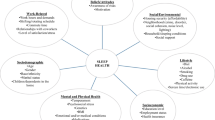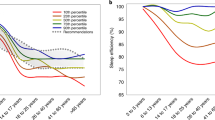
Overview
- Tackles the controversial and popular topic of insomnia
- Reviews historical and cutting edge academic research to critique the norm and put forward a new theory linking REM sleep with appetite
- Aims to cut through some of the anxiety-inducing messages that have proliferated to help those who suffer from the condition
Access this book
Tax calculation will be finalised at checkout
Other ways to access
About this book
This book critically evaluates the popular notion that today’s society is suffering from ‘sleep debt’, or what Horne calls ‘societal insomnia’ - an apparent chronic loss of sleep, which can lead to obesity and related physical and mental disorders including heart disease.
It presents evidence which suggests that sleep debt has not in fact worsened to any marked extent over the last hundred or so years, by looking back at some historical writings on sleeplessness and integrating the findings with, evidence-based research that he has undertaken over the last decade.
Written in a concise and understandable way, and interwoven with real-world insights, the book will be useful to academic and students of cognitive, critical and social psychology, neuroscience and sociology, as well as anyone who is interested in the social and psychological implications of sleep and sleeplessness.
Similar content being viewed by others
Keywords
Table of contents (14 chapters)
-
Front Matter
-
Back Matter
Authors and Affiliations
About the author
Bibliographic Information
Book Title: Sleeplessness
Book Subtitle: Assessing Sleep Need in Society Today
Authors: Jim Horne
DOI: https://doi.org/10.1007/978-3-319-30572-1
Publisher: Springer Cham
eBook Packages: Behavioral Science and Psychology, Behavioral Science and Psychology (R0)
Copyright Information: The Author(s) 2016
Hardcover ISBN: 978-3-319-30571-4Published: 19 August 2016
Softcover ISBN: 978-3-319-32791-4Published: 29 August 2016
eBook ISBN: 978-3-319-30572-1Published: 24 August 2016
Edition Number: 1
Number of Pages: XX, 212
Number of Illustrations: 7 b/w illustrations, 1 illustrations in colour
Topics: Cognitive Psychology, Critical Psychology, Biological Psychology, Biological and Physical Anthropology



